The Tax Cuts and Jobs Act is a sweeping tax reform package that impacts virtually all taxpayers, including tax exempt organizations. The final text as agreed on by Congress, does not modify or repeal the so-called “Johnson amendment” that generally restricts 501(c)(3) organizations from political campaign activity. The provision to revise reporting requirements for donor-advised fund sponsoring organizations was also dropped. However, the Tax Cuts and Jobs Act makes significant modifications to the taxation of exempt organizations. It prohibits the offset of income from different unrelated trades or businesses for the same tax year, and also provides for a new Internal Revenue Code section that imposes an excise tax on the net investment income of certain private colleges and universities.
Unrelated Business Taxable Income
The unrelated business income tax (UBIT) generally applies to income derived from a trade or business regularly carried on by an exempt organization that is not substantially related to the performance of the organization’s tax-exempt functions. The Tax Cuts and Jobs Act requires that for an organization with more than one unrelated trade or business, the unrelated business taxable income (UBTI) is first computed separately with respect to each trade or business and without regard to the specific deduction generally allowed under section 512(b)(12). A net operating loss deduction is allowed only with respect to a trade or business from which the loss arose.
The result of the provision is that a deduction from one trade or business for a tax year may not be used to offset income from a different unrelated trade or business for the same tax year. The provision generally does not, however, prevent an organization from using a deduction from one tax year to offset income from the same unrelated trade or business activity in another tax year, where appropriate.
Transition rule. The provision is effective for tax years beginning after December 31, 2017. Under a special transition rule, net operating losses arising in a tax year beginning before January 1, 2018, that are carried forward to a tax year beginning on or after such date, are not subject to this rule.
Excise Tax on Net Investment Income of Private Colleges and Universities
Private foundations (other than exempt operating foundations) are generally subject to a two-percent excise tax on their net investment income. However, private colleges and universities are considered 501(c)(3) educational organizations and are public charities rather than private foundations. Under present law, they are therefore not subject to the private foundation excise tax on net investment income.
In tax years beginning after 2017, the Tax Cuts and Jobs Act imposes an excise tax of 1.4% on the net investment income of certain private colleges and universities. For this purpose, net investment income is the same as defined for purposes of the excise tax applicable to private foundations.
An “applicable educational institution” subject to this excise tax is defined as an educational institution that
- has at least 500 students during the preceding tax year, of which more than 50 percent are located in the United States;
- is a private educational institution and not a state college or university; and
- has assets with an aggregate fair market value of at least $500,000 per student (not including assets used directly in carrying out the institution’s exempt purpose) as measured at the end of the preceding tax year.
For these purposes, the number of students of an institution is based on the daily average number of full-time students attending the institution, with part-time students being taken into account on a full-time student equivalent basis.
The assets and net investment income of any related organization are treated as assets and net investment income of the applicable educational institution.
For more guidance on these and other tax issues for exempt organizations, contact Richard Scoresby.



